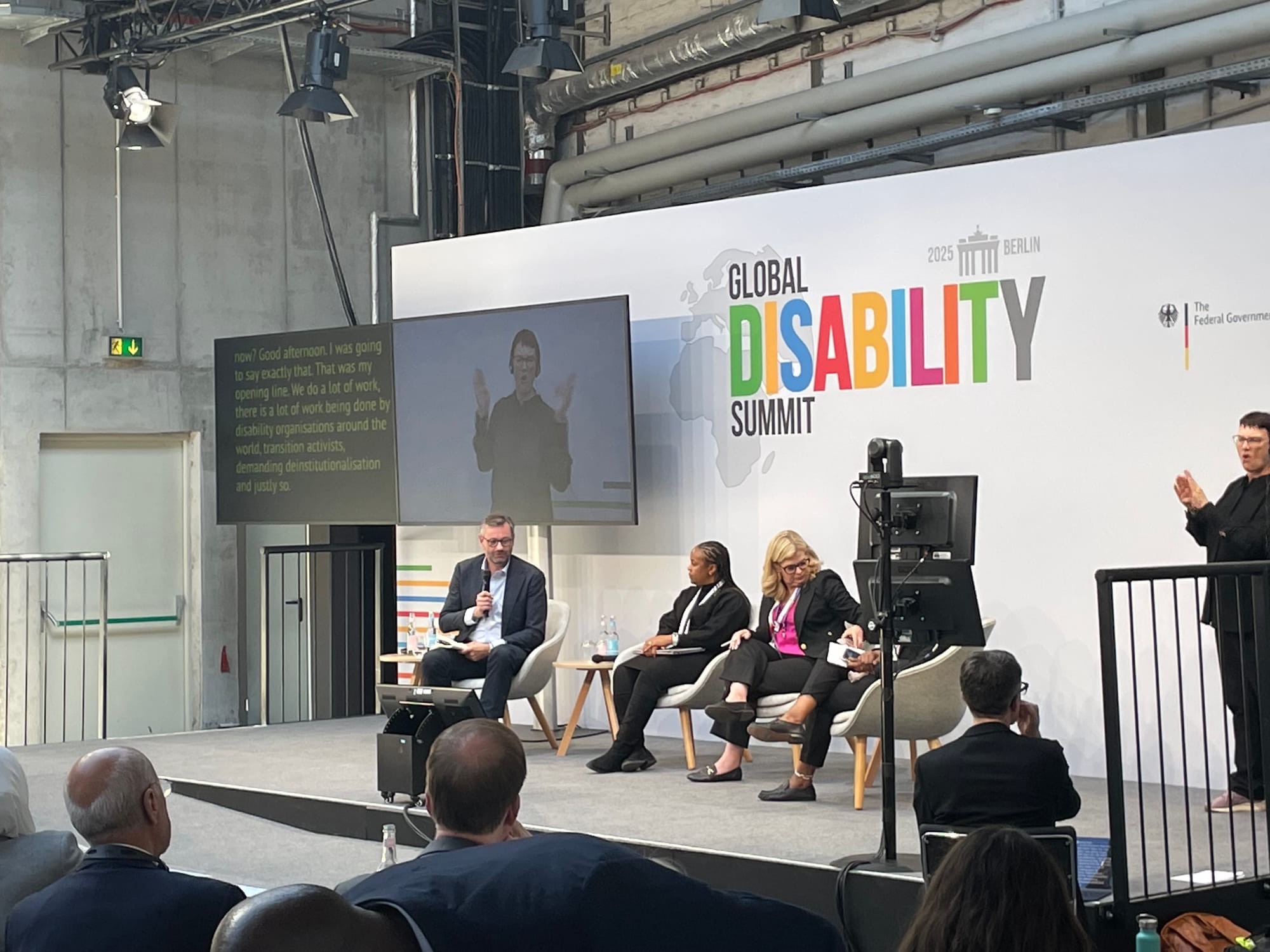DI is not a rocket science
Milan Šveřepa's contribution at the Global Disability Summit side-event, April 2025, Berlin.

As organisations of people with intellectual disabilities, and other advocates, we spend a lot of time demanding deinstitutionalisation.
We also need to give time to working with those who make it happen.
It's about demonstrating to those responsible that deinstitutionalisation is doable.
It has been done.
It is being done.
It can and will be done.
Deinstitutionalisation is not a rocket science.
It is a practice.
✅ It is a practice done every day by families and informal carers. They provide 80% of care.
✅ It is a practice done by disability support providers helping people live to live independently and to be included in the community.
✔️ It is a practice done by governments and regions which close institutions and replace them with good support.
There are very many practicing the first two elements. Quite a few of them were in the GDS room.
But there is nowhere near enough being done about the third bit.
There are more than 700,000 people with intellectual disabilities in large institutions in Europe alone.
And many more around the world.
Governments must end this segregation of people with intellectual disabilities.
Steps to end segregation
That means doing three things:
- Stop placing people in institutions. This, of course, means developing more good community-based support.
- Help people move out of the institution and into their new home.
- Support people to live a good live, included in the community.
Ultimately, it boils down to this:
- Everyone needs a place to live.
- Every person needs to have social roles and relationships, with friends, family, colleagues.
- Everyone needs to have things to do and places to be.
And above all, they need to have the power of deciding about all these things.
We know how
And there are many (families, service providers) who know how to support those who need it.
We can build on their experience.
We can learn from it, improve it, and extend it to everyone.
That’s what our work at Inclusion International and Inclusion Europe is about in the “Doing DI hub”.
Connecting those who know with those who ask how.
Using the massive “DI know-how” to make Europe (and the world) finally end segregation of people with intellectual disabilities and isolation of their families.
Published as part of Together+ project platform to exchange practice in transition from institutions to community-based support. Platform participants learn and exchange on approaches and progress in different countries. Platform participants take these lessons in developing new collaborations and ways of speeding up deinstitutionalisation in their countries.
